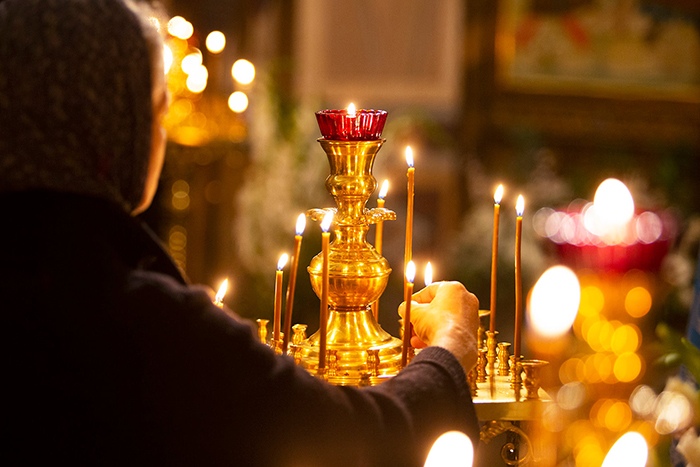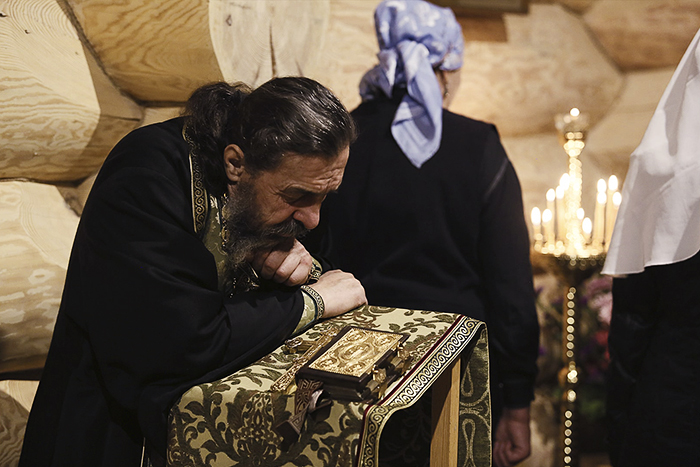
Part 1. Causes of the Babylonian captivity
Preparation for the Great Lent has begun. The Church attunes its followers to this salvific journey of forty days by referring them to the theme of Psalm 137, also known by its first verse, starting with the words “By the rivers of Babylon.”
Its authorship is unusual. The Psalm is signed “From David from Jeremiah”. On these grounds, the Holy fathers Athanasius the Great and the blessed Theodor of Crete attribute the Psalm to two authors. The Holy Prophet and King David wrote it at the instigation of the Holy Spirit. The Psalm prophecised to the Jews the future destruction of Jerusalem and their captivity of Babylon. King David lived almost 1000 years before the Holy Nativity, and the Babylonian captivity happened almost 600 years before the birth of Jesus Christ, and 400 years after the reign of King David. The Holy Prophet Jeremiah was a contemporary of the Jews who saw the destruction of Jerusalem. He gave them repeated warnings about the forthcoming destruction of Jerusalem for their unrepented sins. In this way, he interpreted Psalm 137 to his contemporaries and for future generations. The Church honours the prophet Jeremiah and King David as co-authors of Psalm 137.
Yet there is more to the Psalm than its historical background. Inspired by the Holy Spirit, its text has multiple meanings and extraordinary depth. It can be interpreted in at least three aspects. One deals with history, the other with morality, and the third offers guidance for the future.
So let us examine each of these, starting with the Babylon captivity. Why did the Lord allow the Jews such sorrows? Why did He not prevent many thousands of deaths, the destruction of the temple and the city of Jerusalem itself? The witness to these events, the Holy Prophet Jeremiah answers: “The people of Judah have done evil in my eyes, declares the Lord. They have set up their detestable idols in the house that bears my Name and have defiled it.” (Jeremiah 7:30). He refers specifically to the unholy Jewish king Manasseh who ordered the idol of the Babylonian goddess Astartes to be brought into the temple, a blatant sacrilege.
The Holy Prophet continues: “‘Will you steal and murder, commit adultery and perjury, burn incense to Baal and follow other gods you have not known, 10 and then come and stand before me in this house, which bears my Name, and say, “We are safe”—safe to do all these detestable things? (Jeremiah 7:9, 10).
He also wrote:
“The children gather wood, the fathers light the fire, and the women knead the dough and make cakes to offer to the Queen of Heaven. They pour out drink offerings to other gods to arouse my anger. But am I the one they are provoking? declares the Lord. Are they not rather harming themselves, to their own shame? Therefore this is what the Sovereign Lord says: My anger and my wrath will be poured out on this place—on man and beast, on the trees of the field and on the crops of your land—and it will burn and not be quenched (Jeremiah 7:18-20).
The Pagan goddess mentioned here is Astartes, the Goddess of the sky in Babylon and Assyria. In Babylon, they baked round sacrificial biscuits in her honour, shaped like the moon. Originally, Astartes was revered as the patroness of the moon.
Finally, the prophet Jeremiah describes the gruesome customs that the Jews had adopted from Canaan – the ritual killing of infants. The poor infants burned in the fire in a location called Topheth in the Valley of Hinnom in the south of Jerusalem (also known as Gehenna Valley). In Orthodoxy, this name became synonymous with Hades. The infants were sacrificed to the idols Moloch and Vaal of Canaan. hey have built the high places of Topheth in the Valley of Ben Hinnom to burn their sons and daughters in the fire—something I did not command, nor did it enter my mind (Jeremiah 07:31).
So the reason for God’s wrath against Jerusalem was obvious. The people had stepped away from their faith in the True God; their transgression was so gross that they began to burn their children as a sacrifice to pagan gods.
Only one thing could bring them back to the true faith and make their minds sober – a grave sorrow. God sent it to the Jewish people as the Babylonian captivity.
It was not sent to destroy, but to heal.
What lessons can we learn from this episode in biblical history?
The transgression of a single individual brings illness and destruction if it escalates and is not repented. The sins of society and people bring cataclysms and calamities; they do not happen by accident but have underlying spiritual causes. With His suffering, our all-merciful Lord brings us salvation and directs us towards the path of repentance. Many thousand years ago, the Jews who had bemoaned the loss of their temple and cities, found their way back to their Lord.
In the next article, we will examine the causes of the Babylon captivity of the Jews and begin to interpret the verses of Psalm 137.
Translated by The Catalogue of Good Deeds
Source: https://pravlife.org/ru/content/tolkovanie-136-go-psalma-ili-na-kakih-rekah-vavilonskih-nam-nadlezhit-plakat-i-kakih




